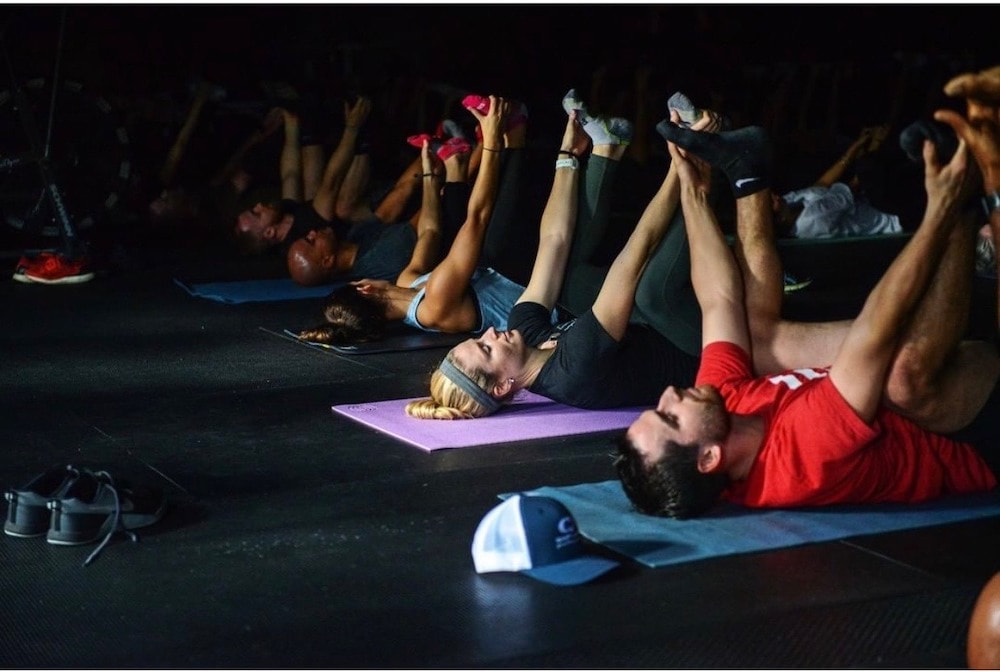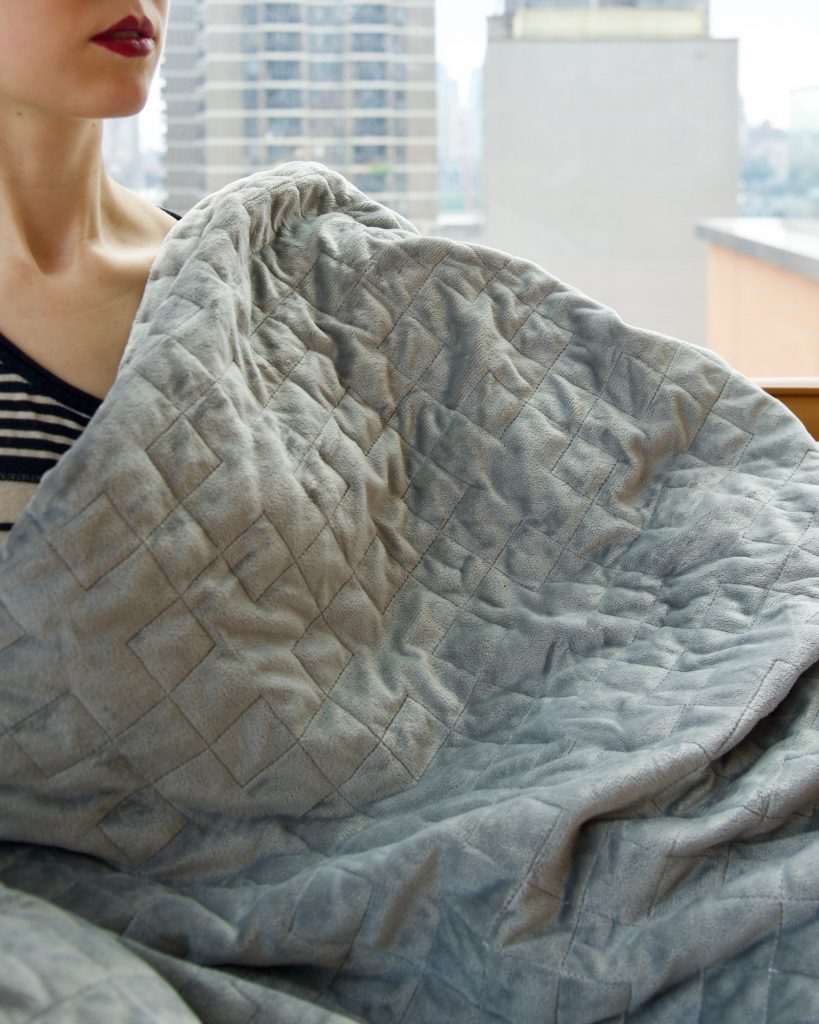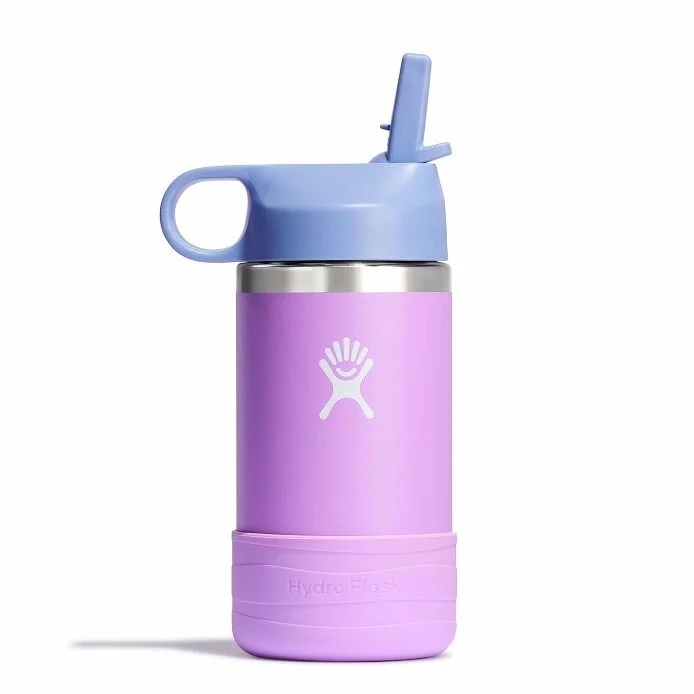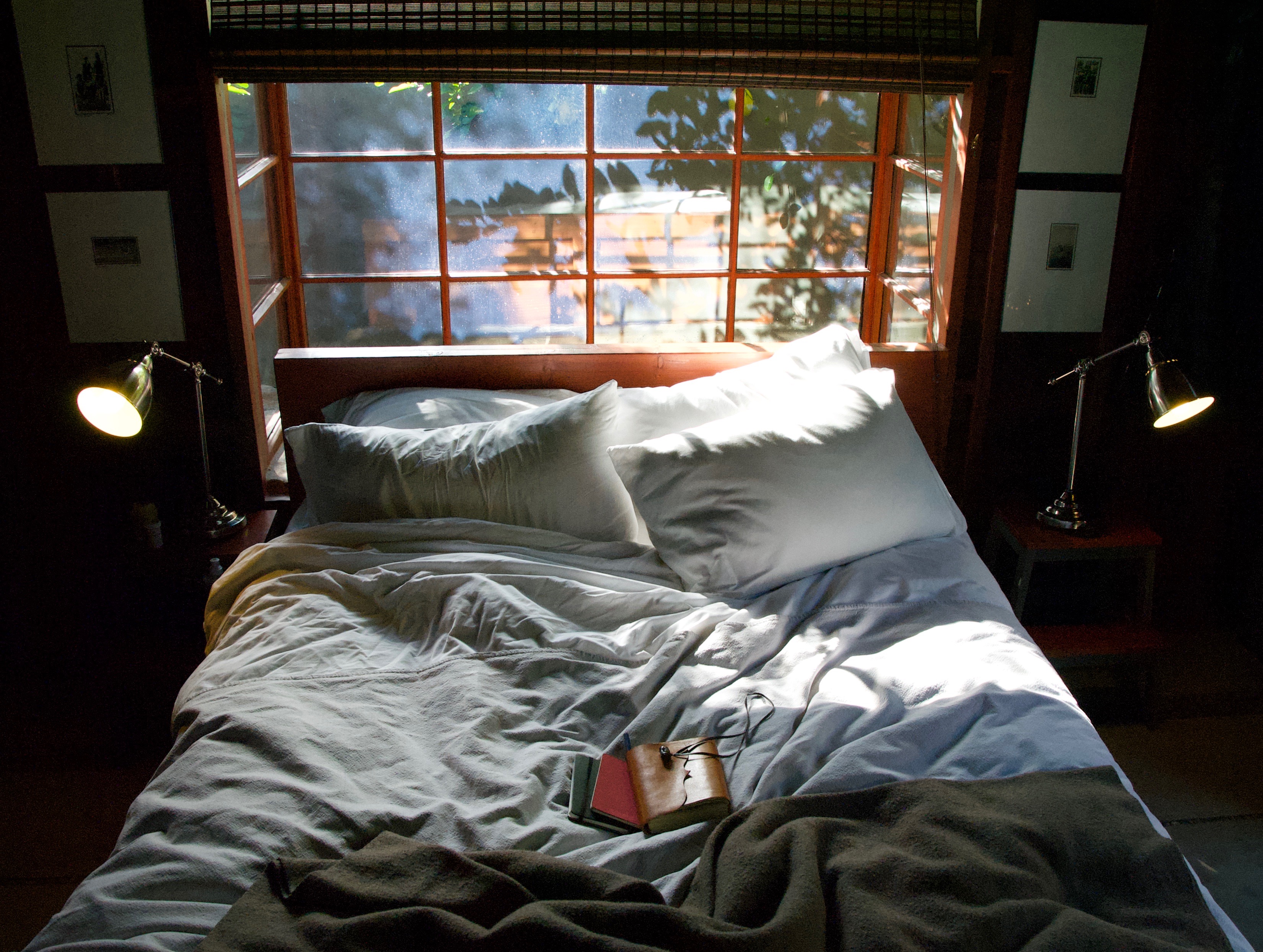According to the latest data from the Cleveland Clinic and the National Institutes of Health, almost 50% of adults report difficulty falling asleep at least a few times each month. While the number of people with full-blown insomnia is hard to measure, many people who struggle to fall asleep blame racing thoughts at night.
In this context, even mild sleep problems can feel like an endless, frustrating cycle for those who experience them. What can you say to someone whose brain won’t let them sleep?
The pattern of “being alert at night” and “sleepy during the afternoon” decreases productivity, creativity, and negatively impacts health and wellbeing.
Central to this problem is a very familiar feeling: a cycle of thoughts that keep spinning, spinning, spinning through our minds while keeping us awake.
Racing thoughts at night are a principle, self-identified cause of insomnia for many people. Luckily, there’s hope.
Below, we spotlight what the research says about this problem, and how to prevent further racing thoughts at night.
***

Keep a Notebook + Pen Near Your Bed
Researchers at Baylor University found that taking a few minutes to write down the next day’s to-do list before bed can actually help people fall asleep faster. Writing a list of tasks is thought to “offload” thoughts and reduce worry.
The theory is that in this age of 24/7 information exchange, many insomniacs have trouble turning off their brains. (In this controlled study, those who wrote down the next day’s tasks felt less inclined to cycle through their to-do lists or other concerns they had about the next day’s activities.
To measure the quality of sleep, researchers used “overnight polysomnography,” a gold standard in sleep research that monitors brain activity using electrodes.)
So, the next time you find yourself obsessing over how many things you have to do tomorrow, consider writing them down.

Exercise at Night Rather Than in the Morning
A meta-analysis conducted by Harvard sleep researchers indicates that, contrary to popular belief, exercising at night does not negatively affect a person’s ability to fall asleep.
In fact, as long as the exercise isn’t vigorous and it is performed at least one hour before bed, evening exercise actually helps people fall asleep quickly and more soundly.
Think about this the next time you have an opportunity to take an evening yoga class. If all else fails, a short walk after dinner counts as “exercise” in this context.
Talk to Your Partner or A Loved One Before Bed
Rather than reading or watching TV for bed, consider talking to your partner– or calling a friend or loved one– to talk about life. This is a weirdly specific but sage piece of advice, and the data backs it up.
Dr. Emre Selcuk, a social psychologist at Turkey’s Middle East Technical University, has documented this phenomenon.
He wrote a paper suggesting that “enhancing perceived partner responsiveness has the potential to increase the effectiveness of interventions designed to reduce sleep disturbances [and] and improve individual well-being in general.” Humans, as it turns out, rest easier when they feel like someone cares about them.
It may come as no surprise, that racing thoughts at night occur less frequently for those in a happy relationship.
Unlike television or reading, which are inherently insular activities, talking to a partner at night takes us out of our heads and reminds us that someone cares about us.
Cuddling, meanwhile, releases the so-called “love hormone” oxytocin, which makes humans feel happy and relaxed, two excellent precursors for sleep.

Sleep With a Weighted Blanket
As we wrote about in our Gift Guide for Stressed Out People, weighted blankets like the Gravity Blanket can help people fall asleep deeply and more soundly.
By simulating what feels like a hug in our brains, Gravity Blanket weighted blankets exponentially increase the relaxation response by inducing a physical feeling of wellbeing.
For those suffering from racing thoughts at night, this “deep touch pressure stimulation” can be very helpful. It’s a form of proprioceptive input that sleep doctors have used therapeutically for decades.
Ideally, weighted blankets should be approximately 10 percent of the sleeping person’s body weight. This is why the blankets come in a variety of weights (15 lbs, 20 lbs, etc).
For maximum effectiveness, do not share weighted blankets with a partner– they are designed for individual use. While gravity blankets are a bit pricey, they are proven effective.
Other companies like YNM make cheaper weighted blankets in a variety of cool colors and sizes, but they have less data that demonstrates their effectiveness (though the idea is the same).
Either way, with a variety of affordable options on Amazon, it’s easy to find something that suits your body and your sense of style.
No Social Media If You Can’t Sleep!
Try to avoid social media if you can’t sleep. The combination of blue light + FOMO (aka “Fear Of Missing Out”) will not help you fall asleep.
Instead, reach for a book or think about doing “boring” body maintenance work like neck stretches or toe exercises (like picking up a pen with your toes, rolling out your feet with a tennis ball, etc).
Postpartum moms may even consider doing pelvic exercises like kegels. There’s always some part of the body that needs to be stretched or massaged. Get creative.
Focusing on these areas of tension rather than the fury of your own mind will help you relax. It will also take your mind away from whatever is keeping you awake.
However, this practice does take discipline. If you’re still worked up after 1 hour of sleeplessness, your body is too activated to sleep.
In this case, you should get up. Then, do something to dissipate this energy. (That’s what the experts recommend.)
Try reading on the couch or organizing your bathroom shelves; something mundane. Just don’t turn on the television– the blue light from the screen will keep you awake.

Drink More Water Throughout the Day
I know I know, you’ve heard this a million times. “Drinking more water” seems like a panacea to most wellness problems these days. But it really does help the body work more efficiently! Dehydration disrupts the body’s production of melatonin, the so-called “sleep hormone”.
What’s worse? Insomnia itself can also cause dehydration, likely because tired folks are more likely to reach for dehydrating caffeine drinks.
Another theory is that vasopressin, an antidiuretic hormone that regulates water balance during sleep, has a shorter window to act if you’re getting less sleep at night.
Drinking more water also improves the quality of sleep by keeping muscles and joints lubricated. This, weirdly enough, makes you more likely to fall asleep peacefully the next time you lay down to rest.
Don’t wait until bedtime to drink all your water, though. You’re supposed to hydrate throughout the day to improve sleep. Otherwise, you might find yourself waking up in the middle of the night from an over-full bladder.

Consider The Root Cause
New studies reveal that people experience insomnia when they are emotionally unsettled (not acutely stressed).
Accordingly, if your obsessive nighttime thoughts become a constant, it might be worth going to therapy to address the root cause.
(Theoretically, for example, a deadline at work shouldn’t keep you awake at night. But an existential realization that you aren’t happy in your job might.)
If you’re not sure what’s bothering you, consult our 5-Step Method for Identifying Misplaced Emotions. Insomnia is rarely an isolated problem, but identifying the underlying cause will make it much easier to treat.
***
Related: These are the 9 Most Common Themes in Scary Dreams, and What They Represent.
Still struggling to sleep? Consult our guide to the 11 Best, Most Effective Herbal Remedies for Insomnia.
Our Comprehensive Guide to Anxiety Relief and these 5 Easy Stretches for Releasing Neck and Shoulder Tension may also be helpful.


[…] Want more brain hacks? Read our article on How to Cure Racing Thoughts at Night. […]